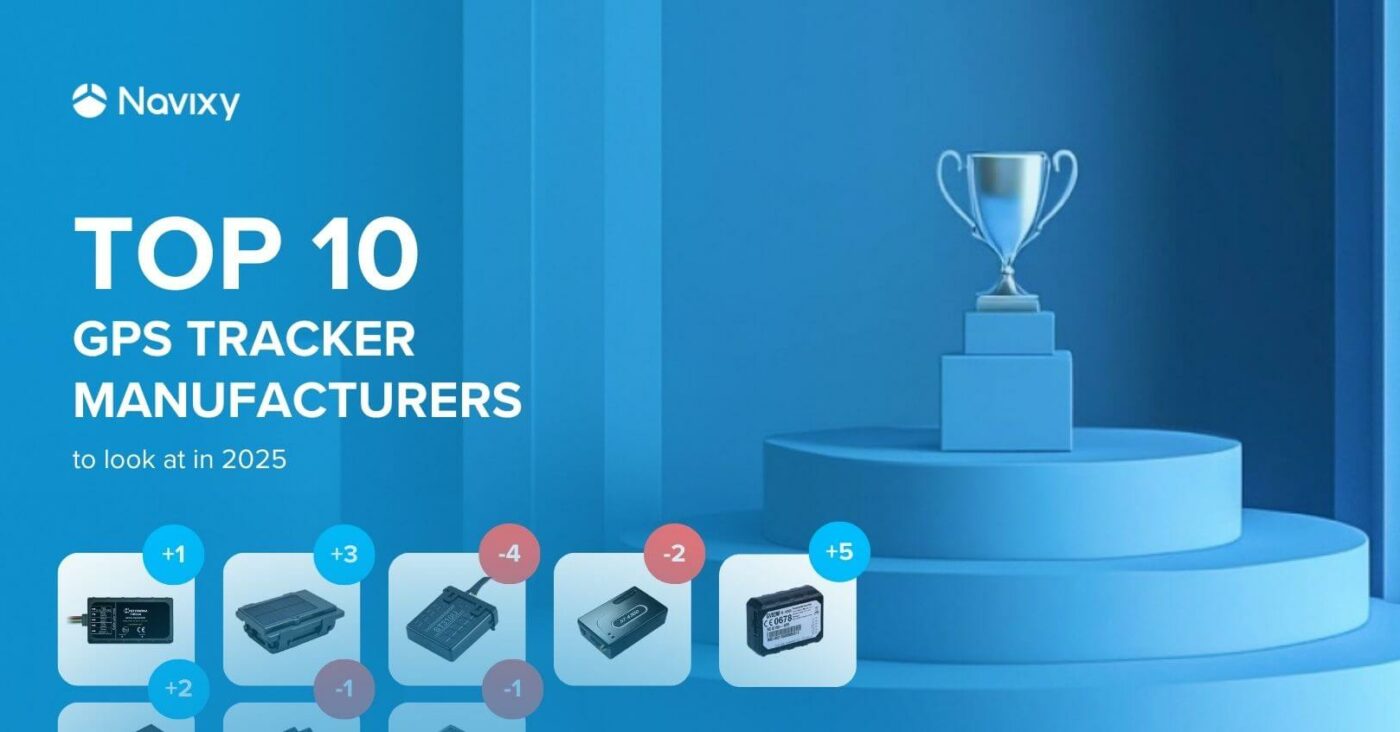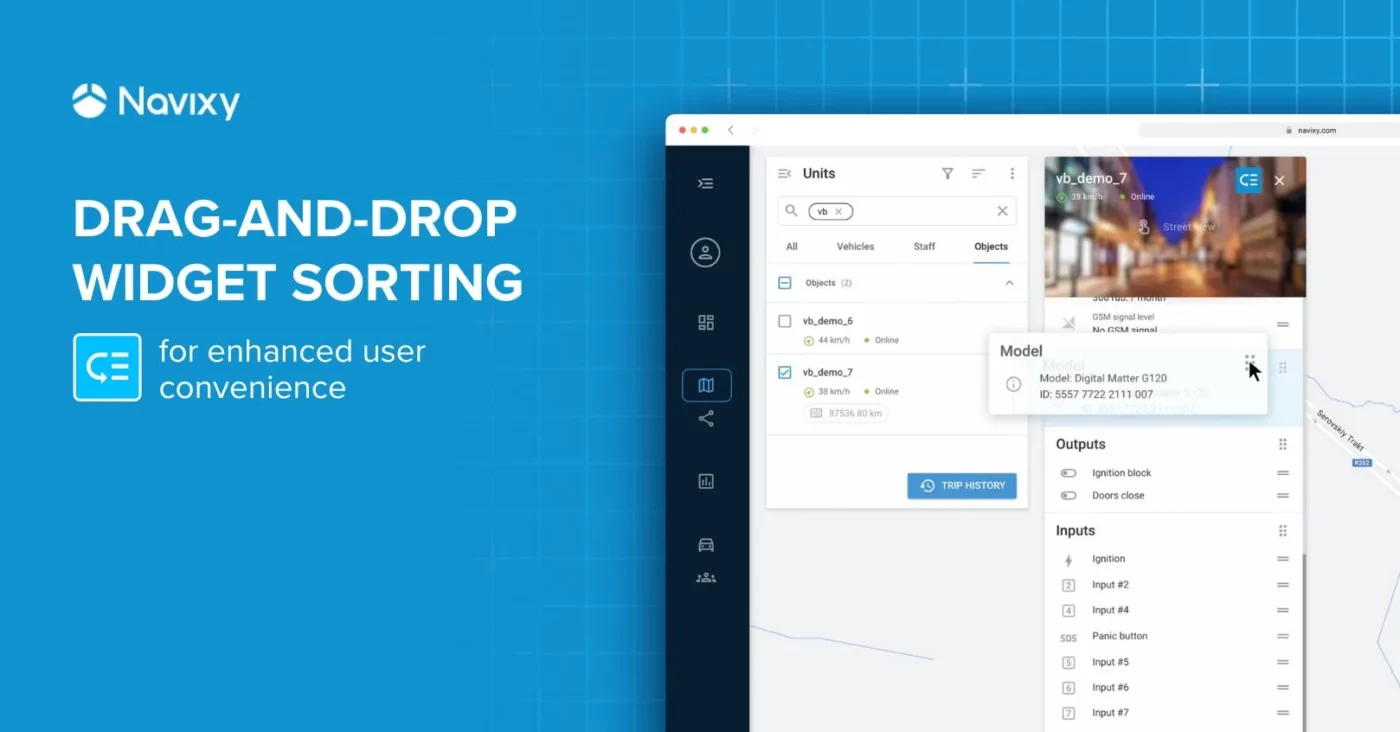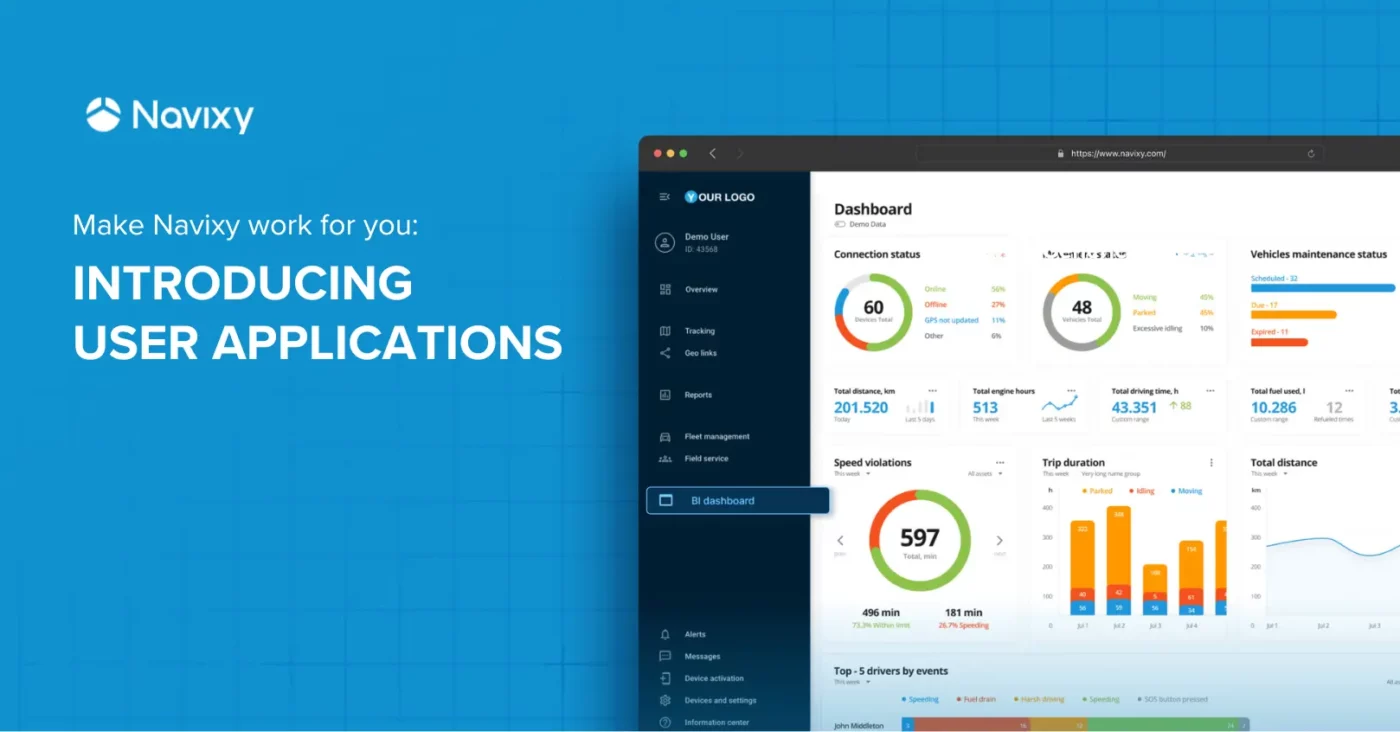In this post, we will examine the best GPS tracking platforms for service providers that offer white-label customizations. We will also discuss why these providers often chose to run their businesses under their own brand and the potential drawbacks to doing so.
Whether you are just starting out with your GPS tracking business or have an established company that serves thousands of customers, the question may still linger: should you promote your services under a private brand name or become part of a reputable and well-known market leader through franchising?
For business owners, both options are intriguing and depend on their circumstances and the maturity of the market they work in. Growing your own brand is an alluring option for entrepreneurs searching for new product-market fits to help scale up with investors, yet operating under someone else's umbrella can be a secure haven for many local businesses.
In addition, throughout the business life-cycle, owners may change their perspective. Maybe they are thinking about retiring and selling their business or deciding to pivot from providing GPS tracking services to building a product for a specific niche. Whichever the case, it's important to explore new possibilities.
Here, we will take an in-depth look at the White-Label option, which is by far the preferred choice globally, particularly where GPS tracking is predominantly used for security and theft prevention purposes. After serving thousands of GPS professionals over 12 years, Navixy has gained an immense amount of experience regarding how entrepreneurs' mindsets have changed over time and what motivates them to opt into growing their own brands with white-label solutions today.
Why service providers prefer white-label
As previously mentioned, many entrepreneurs that provide GPS and telematics services to end customers are more inclined towards GPS tracking platforms with white-label capabilities. Although there are tradeoffs associated with this approach, let's first explore the benefits the white-label approach offers for GPS tracking businesses. Recently, the trend of companies operating on white-label platforms has focused on these advantages:
- Cost efficiency
- Protecting business
- Brand management
- Product versatility
- Business valuation
Let's explore these reasons in greater detail.
1. Cost efficiency remains the main factor for entrepreneurs in avoiding the franchising business model. When you provide services under your own brand, you typically keep a greater percentage of income than if you were to partner with a vendor or franchise. Additionally, you have more flexibility on pricing and discounts for your customers, since you don’t need to adhere to end-user prices mandated by the vendor.
2. Protecting businesses from the acquisition of its customer base is another crucial reason. Unfortunately, we often see franchising vendors shift from partner channels to direct sales, disregarding prior agreements and damaging the businesses that relied on them. By providing services under your own logo, you can protect yourself against such customer losses.
3. Brand management is the third factor why GPS tracking companies incorporate white-label GPS tracking platforms. By customizing the product's appearance and feel, you can ensure that your brand is correctly portrayed according to your vision, helping to ultimately reach your desired goals.
4. Product versatility means that you gain access to a wide selection of GPS hardware and integration with third-party systems. By not limiting yourself, you can customize your customers' experience by providing them with more tailored products. As a result, their needs will be more efficiently met while also supporting your business objectives.
5. Business valuation is the fifth common reason under consideration, especially if you are planning on selling your business at retirement or starting a new endeavor. The existing brand equity adds value to your company and gives you a wider choice of potential buyers.
Cons of white-label GPS tracking platforms
Now, let’s look at the trade-offs of white-label GPS tracking.
Although there's not much of a distinction from a technical standpoint when you work privately versus under someone else’s logo, customer communication is another story. When working with an established vendor, you can benefit from their marketing and customer service initiatives. They may forward leads to your region in response to inquiries made on their website as well as quickly address basic support requests during extended hours of operation. In contrast, when you provide services under your own brand name, management and communication strategy are fully your responsibility, even if white-label partners offer a degree of aid to you.
Marketing and sales
Marketing and sales efforts are higher when working under your own brand. You will need to invest more in lead generation on both the marketing and sales sides. Whether you rely on warm or cold lead generation, you need to handle it purely by yourself or hire resources to handle it for you. However, your white-label software provider may help you by providing Marketing collateral to streamline your marketing efforts.
Support
Customer support requires more effort when operating under your own brand. Even though your white-label solution provider assists with second-level support, you will still need a dedicated team to promptly process initial requests from your customers. Additionally, you'll need to offer a smooth way for your customers to access user guides and API documentation. Your white-label provider may help facilitate this by embedding Knowledge base materials right into the user interface and on your website, as well as by integrating with your helpdesk system.
Best GPS tracking platforms to consider in 2023
Now, with an understanding of all the upsides and challenges of going with the white-label business model, let's list the most globally recognized GPS tracking platforms for service providers. Having been in this space for more than a decade, we at Navixy are quite aware of the software market landscape and how it changes over time. We know and respect all our competitors, and truly believe that competition is a main driver of any industry; therefore, we try to stay unbiased.
You may be surprised, but there are over 100 companies worldwide that develop white-label GPS tracking software! Most of them are regional players that serve local end customers and offer white-labeling as a side product. Another large category of these systems is developed by manufacturers of GPS tracking devices. Such systems don't fully address all the needs of GPS providers mentioned above, so they can't be considered true white-label platforms.
Amongst the strongest white-label GPS platforms, there are a handful of systems that are the most popular with service providers due to their functionality, versatility, continuous development, and pricing advantages. To remain impartial, we will list them strictly in alphabetical order.
| The best 5 GPS tracking platforms for service providers in 2023 (in alphabetical order) | |
|---|---|
| GpsGate | Located in Stockholm, Sweden, GpsGate offers a platform for GPS tracking with modular functionality that is suitable for businesses of different sizes. This Windows-based software is excellent for GPS providers offering services directly to their customers, but perhaps it is a better choice for integrators with corporate clients who prefer to have their own instances. In 2022, GpsGate achieved ISO 27001 certification in recognition of its commitment to safeguarding data security. |
| GPSWOX | The company is headquartered in the United Kingdom with branches in the USA and EU. The software is well-known for its aggressive pricing and friendly user interfaces. It’s especially popular among service providers just starting their businesses and also among the more mature ones that cater to consumers and small companies. The company also ships GPS hardware worldwide from its online shop, offering a choice of vehicle and asset trackers from multiple manufacturers. |
| Navixy | Navixy is a platform developed by SquareGPS, a California-based organization with local branches in Latin America and Europe. GPS providers select Navixy due to its scalability and dependability, thereby enabling it to successfully manage large projects. Thanks to its comprehensive integration with the newest GPS devices, providers can significantly reduce their operational costs. Its user interfaces are simple to understand, making it easy for users to become familiarized quickly. |
| Trackzee | This product is provided by Uffizio, a software company based in Valsad, India. With years of experience serving Indian businesses, Uffizio has now opened its product to the international market. By honing its software to attend to corporate needs, the company has recently turned its attention towards analytics and industries such as waste management and school bus transportation. |
| Wialon | Developed by Lithuanian company Gurtam, which also has branches in many locations globally, Wialon is a robust and scalable platform with white-label capabilities. GPS providers looking for highly customizable tracking solutions with a multitude of telematics sensors, and data exchange with other applications, might be the ones who benefit most from using Wialon. |
Capabilities for white-label customization
When selecting a GPS tracking platform, there are several white-label customization features you should consider. Make sure to ask your vendor about the following capabilities in order to make an informed decision and ensure that it meets all of your needs.
Web interface
Ensure that the system enables you to choose your own domain name, incorporate your logo, (for favicon, login screen, and main application), and assign a color scheme so that customers can recognize your product. Don't overlook reviewing the appearance of your web interface on a mobile screen because many customers use smartphones and tablets to access the system. Moreover, you may find it necessary to integrate supplemental software products that your customers need; this is commonly the case when local laws impose regulatory requirements on road safety or tax filing.
Mobile apps
White-labeling mobile apps is in high demand, but quite tricky, especially when you consider publishing them on official app marketplaces such as AppStore and Google Play. In fact, in 2017, Apple and Google enforced policies that banned white-label apps. Since trying to circumvent guidelines is never a good strategy, you have two choices: either forgo official app marketplaces or maintain a cohesive branding strategy and display your brand's personality and style in the application. By the way, Navixy offers precisely this latter option with X-GPS mobile apps.
Links to company resources
It is very likely that you need to link your web and mobile applications with your company's website and other resources. Those resources may require legal documents such as EULA and Privacy terms, and contact details for sales inquiries. The most advanced systems also provide customization for integrations with your helpdesk systems and knowledge base.
Localization
Provide your customers with a smooth experience from the very first launch of the app by configuring regional preferences to match your audience. Language support is the first essential thing to factor in, but there are other requirements that must be taken into account as well: currency, date formatting, and measurement units for distances or fuel consumption. Moreover, consider the default map view when users open the app for the first time. If your platform offers customer demos, make sure that's also customizable. All of these small details make a big difference on successful sales and user onboarding.
Device list
If you want to narrow down the selection of devices your users can activate, or if you're offering white-label/OEM/ODM products with customized device lists and default configuration profiles that upload during activation, then it's essential to ensure that your platform of choice offers customization for device lists.
Connectivity
To provide your customers with reliable and secure services, it is critical that your platform allows for comprehensive connectivity settings. These may include a private APN, encryption, email, and M2M SMS gateways with high deliverability.
If you are going to allow the system to alert your customers via SMS texting (for example, about important events triggered or low balance notifications), you may want to have your local SMS gateway set up with your company's Sender ID.
Billing and payments
With the most advanced platforms, billing your customers is simpler. Verify that the platform you are considering has built-in functionality and supports both your currency and the payment methods required for successful transactions. If you prefer 3rd party billing, then utilizing an API integration with external billing and payment systems may be worth exploring.
The bottom line
There are many GPS tracking platforms for service providers on the market today. Those especially worth considering in 2023 include Navixy, Wialon, GPSWOX, GpsGate, and Trackzee. Each of these platforms offers its own unique features and white labeling capabilities that can help you reach your goals.
If you are eager to provide GPS services under your own brand, it is essential to thoroughly evaluate the complete spectrum of white-labeling options. Visual customization for web interfaces and mobile apps is just the start; you should also pursue configurable application settings, connectivity options, and payment methods. Embracing this buying strategy can help you build a reputable brand that provides customers with a consistent experience and dependable services.


